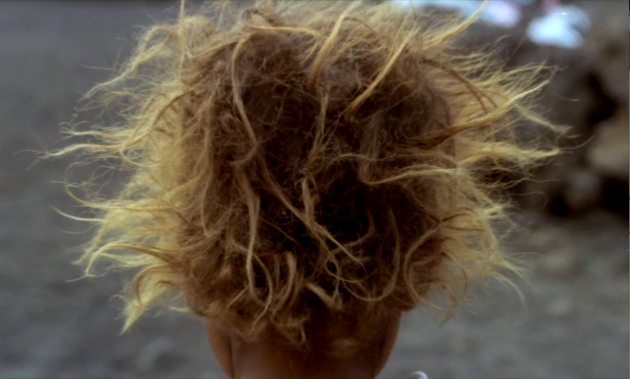
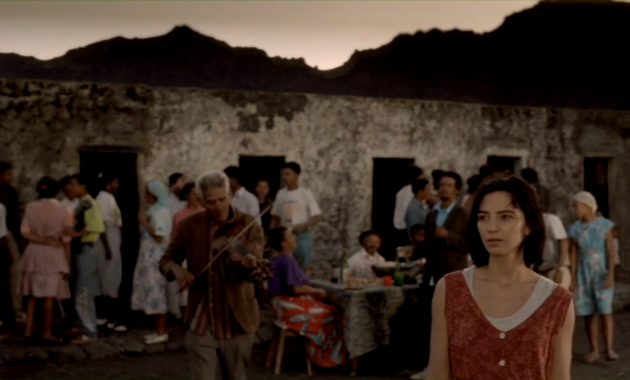
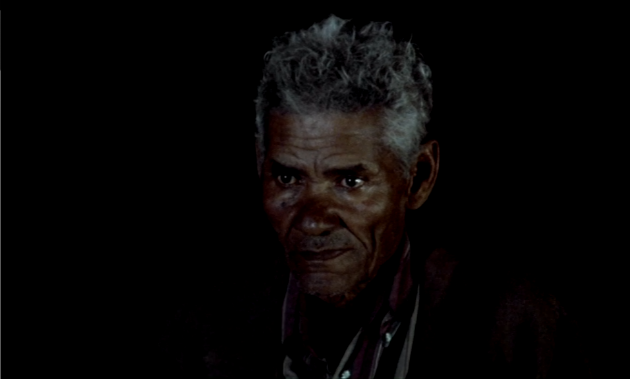
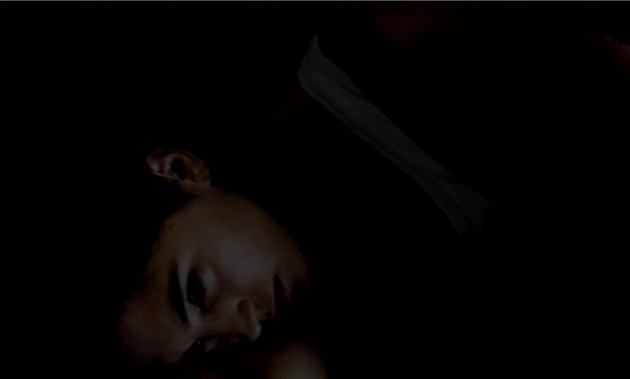
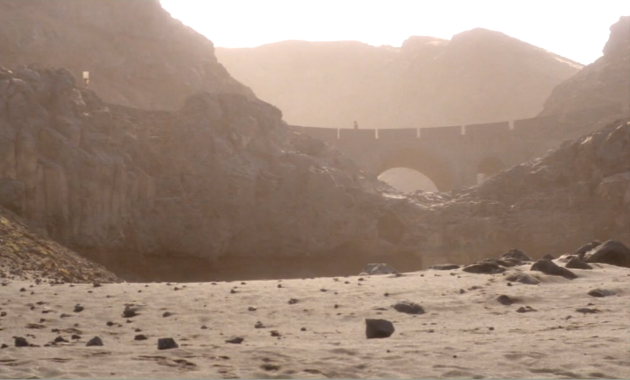
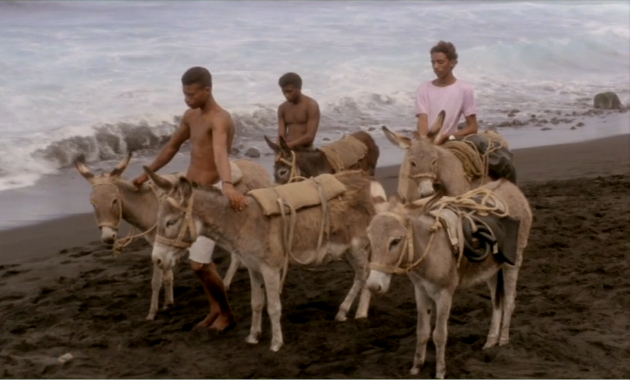
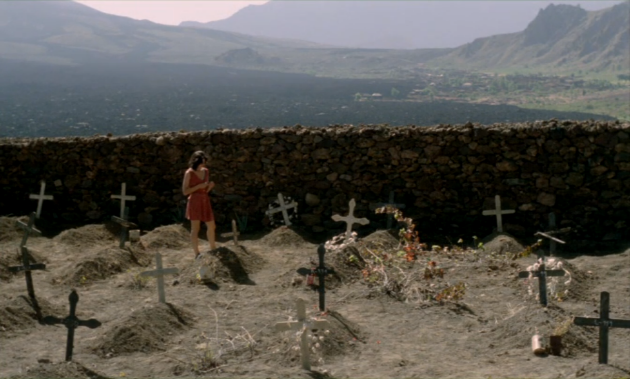
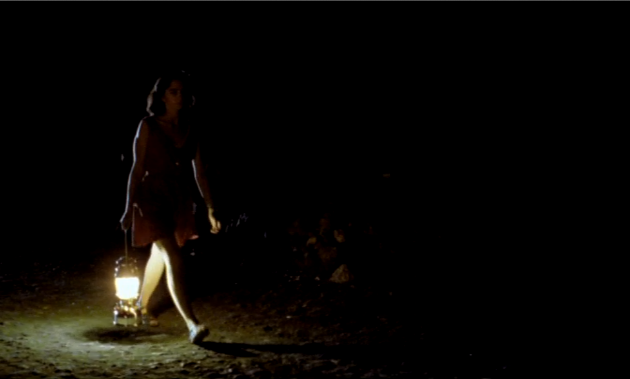
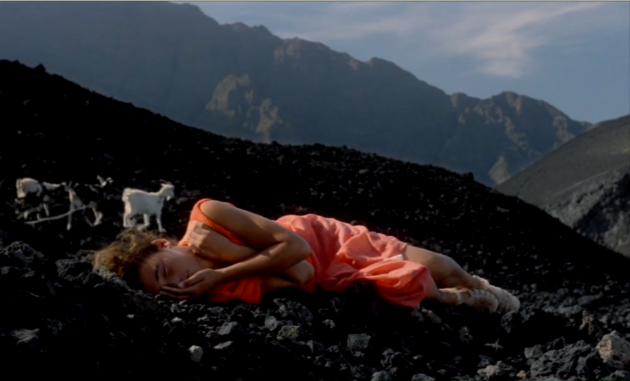
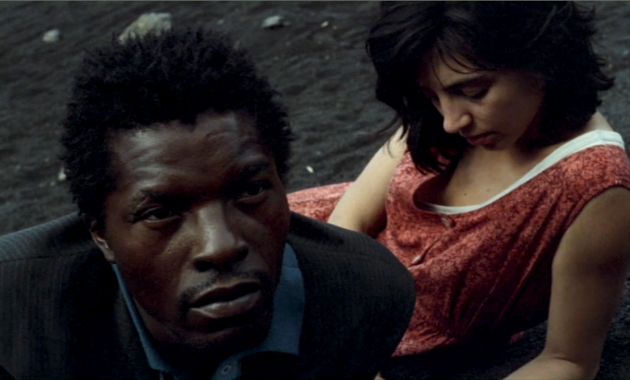
Costa talks about Casa de Lava as the gateway to his subject of his four films, now gone, Fontainhas, an urban shanty town of Lisbon of which many Cape Verdean immigrants once called their second home. It was the otherworldly landscape of the volcanic island of Fogo, that he had heard so much about from the immigrant workers which lured him in.
A nurse named Mariana (Inês de Medeiros) accompanies a construction worker, Leão (Isaach De Bankolé), who fell into a coma from an accident (or suicide attempt?) to his home in Cape Verde. The transportation fee was anonymously donated by the inhabitants of that island nation who wanted him back. Taking a cue from Jacques Tourneur's I Walked with a Zombie, Costa equates Cape Verdeans or what's left of them (massive immigration to the mainland and many are still preparing to leave) to the dead and the dead are calling back Leão. Devoted Mariana isn't getting anywhwere, stuck in the land of the dead, stuck between her loyalty to Leão and the local white boy, the son of mysterious white woman Edith (Edith Scob).
The colonial past is ingrained in everyone's faces - former booming slave trading post, inhabited by pirates and also used as a penal colony, abandoned after 19th century, the mixed race faces are as distinctive and beautiful as that of Brazilians. Elliptical narrative has no stronghold in this but the glorious nighttime cinematography and the beauty of volcanic surroundings make up for its lyrical poetry. You can totally see his later impressionistic approach to filmmaking brewing in the midst of Casa.